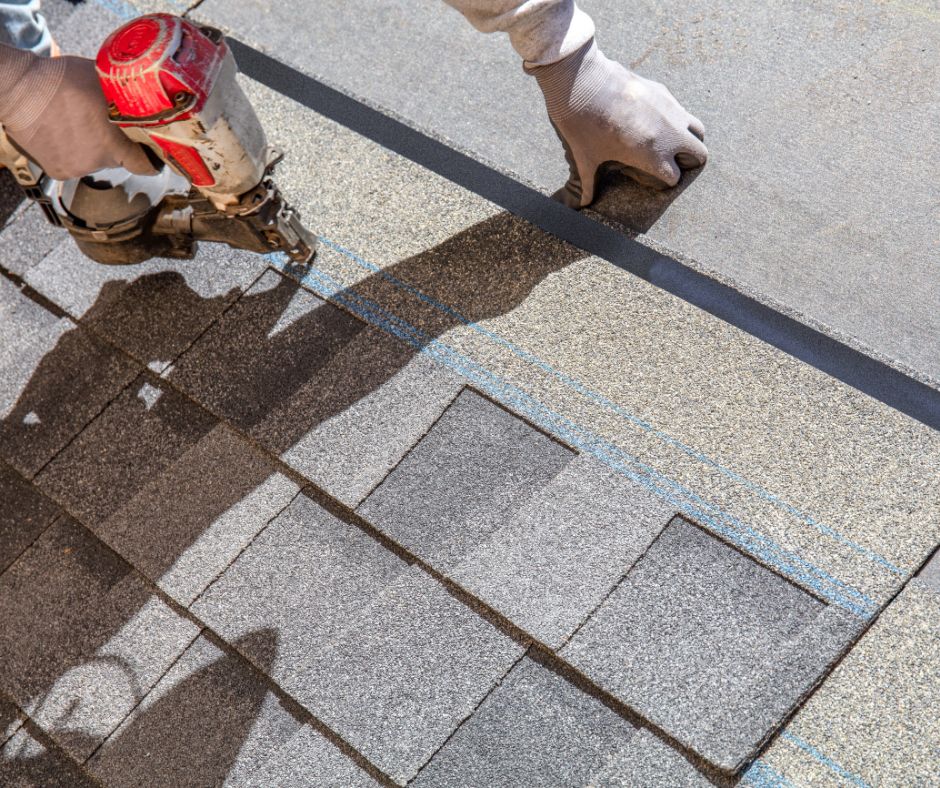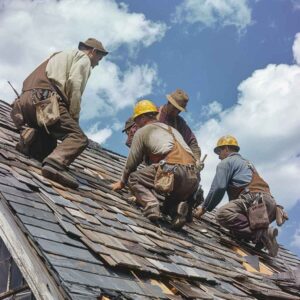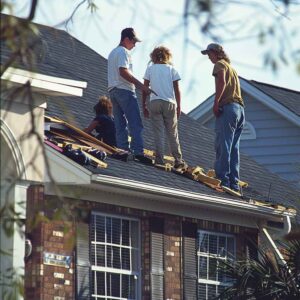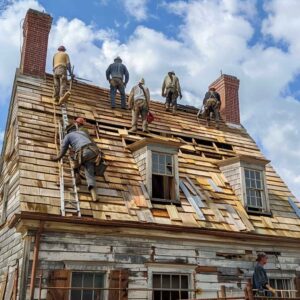Are you in need of a durable roofing material?
Look no further! In this article, we will explore the options and provide you with the answers you seek.
Asphalt shingles, metal roofing, slate tiles, and composite roofing – which one will stand the test of time against harsh weather conditions?
Stay tuned as we delve into the technical aspects and as our experienced roofing specialists guide you toward the most durable roofing material for your needs.
Asphalt Shingles
As a homeowner, you may wonder why asphalt shingles are considered one of the most durable roofing materials.
Let’s delve into the lifespan and pros and cons of asphalt shingles. The longevity of asphalt shingles may differ based on quality, with an average lifespan ranging between 15 to 30 years.
This durability is attributed to the composite material used in their construction, consisting of bitumen and fiberglass or organic materials. Asphalt shingles offer numerous advantages, encompassing affordability, ease of installation, and a diverse array of colors and styles.
However, it is crucial to consider some drawbacks as well. They may be prone to damage from extreme weather conditions, such as wind and hail, and may require regular maintenance to prevent issues like algae growth. Overall, asphalt shingles provide many homeowners with a cost-effective and durable roofing option.
Metal Roofing
If you’re looking for a roofing material that offers exceptional durability and longevity, metal roofing is an excellent choice to consider.
The popularity of metal roofs has been steadily increasing, thanks to their numerous advantages over other roofing materials. Here are some key benefits of metal roofing:
– Longevity: Metal roofs boast an impressive longevity of 50 years or more, surpassing that of other roofing materials.
– Durability: Metal roofs can withstand extreme weather conditions, including high winds, heavy rain, and snow.
– Energy efficiency: Metal roofs reflect sunlight, reducing heat absorption and lowering cooling costs.
– Fire resistance: Metal is non-combustible, making metal roofs highly fire-resistant.
– Variety of materials: Metal roofing is available in various types, such as steel, aluminum, and copper, allowing homeowners to choose the best option for their needs and budget.
With its exceptional durability and a range of materials to choose from, metal roofing offers long-lasting protection for your home.
Slate Tiles
Slate tiles offer exceptional durability and longevity, making them a top choice for homeowners seeking a long-lasting roofing material.
Made from natural stone, slate tiles are known for their long-lasting durability.
They have been used as a roofing material for centuries, and their reputation for longevity is well-deserved. Slate tiles are resistant to fire, hail, wind, and other harsh weather conditions, making them a reliable choice for any climate.
Additionally, the natural stone composition of slate tiles ensures they are highly resistant to rot, pests, and decay. Slate tiles can last for decades with proper installation and maintenance, providing homeowners with peace of mind and a beautiful, long-lasting roof.
Composite Roofing
Composite roofing is a durable option for your roof. Here are some advantages of composite roofing and a comparison between different types of composite roofing materials:
– Versatility: Composite roofing materials can mimic the appearance of various natural materials such as slate, wood, and clay tiles.
– Durability: Composite roofing is designed to withstand extreme weather conditions, including heavy rain, strong winds, and hail.
– Longevity: Composite roofing materials have a longer lifespan than traditional ones, with 20 to 50-year warranties.
– Low maintenance: Composite roofing requires minimal maintenance, saving time and money.
– Cost-effective: Although composite roofing may have a higher upfront cost, its long lifespan and low maintenance requirements make it a cost-effective choice in the long run.
When choosing a composite roofing material, consider factors such as durability, aesthetic appeal, and your budget to make an informed decision.





